Iran Oil Ministry Warns Industries To Lower Gas Consumption
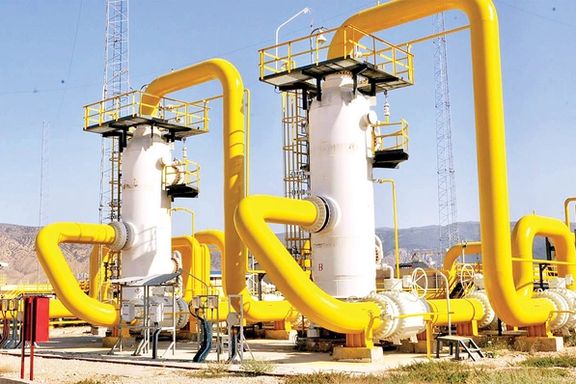
A couple of industrial units in Iran say they have received warnings to lower their natural gas consumption otherwise their ration would be cut off.

A couple of industrial units in Iran say they have received warnings to lower their natural gas consumption otherwise their ration would be cut off.
ILNA news website reported Monday that Iran’s Oil Ministry has released the list of petrochemical units that must stop or reduce their gas consumption. In this letter, petrochemicals producers in Masjid-i Suleiman, Zagros, Shiraz, Bandar Imam, and several others must reduce their consumption.
However, people on social media report some petrochemical industries have already stopped production due to the gas cuts.
Lowering gas consumption means a decrease in petrochemical production, while with a decrease in oil sales, the country is in dire need of foreign currency from petrochemical exports.
The government claims it has no plans to cut off gas from household and instead has reduced gas deliveries to the industrial sector due to its inability to extract enough gas.
Jafar Qadri, a lawmaker, has told ILNA the gas production at Parsian Refinery in southern Fars province has decreased from 80 million cubic meters to 50 million per day, adding that some platforms in South Pars have also faced dire problems.
With cold weather gripping Iran in recent days and a surge in demand, shortages of natural gas have become acute.
Iran has the second largest reserves of natural gas in the world but is barely able to satisfy domestic demand as production steadily declines because of lack of investments in the oil and gas sector.

Criticisms continue in Iran over China’s endorsement of a territorial claim by the UAE, as a top politician Sunday called Beijing’s action “humiliating”.
The former chief of the Iranian parliament's foreign policy and national security committee Hesmatollah Falahatpished called Iran's subdued reaction to China's suggestion that Tehran should negotiate the ownership of three Persian Gulf islands with Abu Dhabi as humiliating.
Meanwhile, China's endorsement of the December 9 GCC statement appears to have torpedoed Supreme Leader Ali Khamenei's much-heralded policy pf “Looking East.”
In his interview with Didban Iran website, Falahatpisheh accused those in charge of Iran's foreign policy of having illusions about strategic ties with China. He was obliquely pointing at Supreme Leader Ali Khamenei, the architect of Iran's "Looking East" policy since 2018, that called for relying on China and Russia in defying the United States.
Earlier, Khamenei had called China "an independent and trustworthy" partner and had urged expanding Iran's ties with Beijing during a meeting with Chinese President Xi Jinping in January 2016.
Falahatp[isheh also recalled that that Russians have sacrificed Iranian forces in Syria by putting them in the frontline of the military campaign to keep Bashar Assad in power. He said: In a world where countries maintain relations based on mutual interests, we see that the number of Iran's enemies in the world are on the rise.
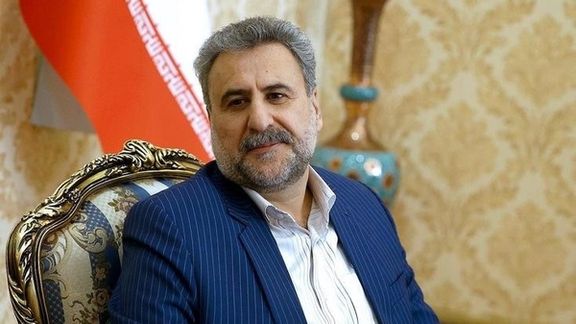
The conservative politician said China's action has been a political shock because a partner signed on a statement undermining Iran's territorial integrity. Falahatpisheh suggested that Tehran should change its policy toward Beijing.
He also criticized Iranian officials for not officially summoning China's ambassador in Tehran. Foreign Ministry officials in Tehran said they had a "meeting" with Beijing's ambassador and told him that Iran is not pleased with what China did. This was so humiliating, Falahatpisheh said.
He reminded Iranian diplomats that China and Russia basically do not believe in strategic relations with a country like Iran, which is weak and isolated.
Meanwhile, in an interview with Rouydad24 website in Tehran, Mehdi Motaharnia, a lecturer on international relations, said Iran was counting on China, but China's behavior showed what matters for other countries is their national interest rather than fixated ideologies. He added: In politics, there are no permanent friends or enemies.
Motaharnia argued that China's behavior should not surprise anyone. What has surprised Iranians is that they were heavily under the influence of their government's propaganda about having a strategic alliance with China. But that propaganda based on wishful thinking was meant to strike a balance in foreign policy to fill the void after the US withdrew from the 2015 nuclear deal.
While Iran continues its “permanent” confrontation with the United States, it wishes to pretend that it has big allies such as Russia and China that prevent its international isolation, Motaharnia said, adding that neither Russia nor China see Iran as a strategic partner. It is Iran that believes it can be a strategic market for those countries.
"This is wrong," said Motaharnia, adding that "It is Iran's wrong perception of international relations that agitates the public opinion in Iran. China is simply following its own interests in the region. So, it is looking for more stable countries to guarantee its profits. This is what pushes China toward Arab countries, particularly Saudi Arabia."
He added that "the tension resulting from the protests in Iran is also another factor that encourages China to reach out to Saudi Arabia, where it uses the term 'The Gulf' instead of Persian Gulf. Motaharnia charged that there is no realism in Iran's domestic and international policies and Tehran is paying the price for doing away with realism."
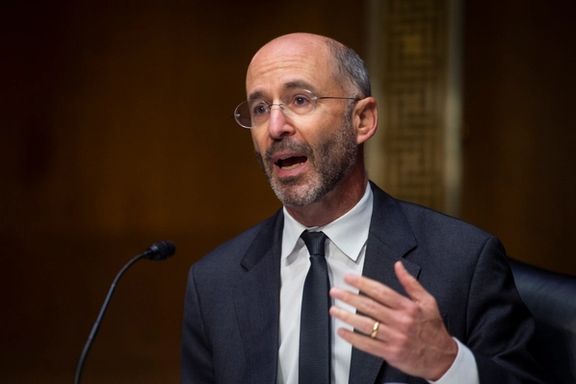
A US diplomat says it is meaningless for the Iranian regime to be a member of the UN Commission on the Status of Women while it violates women's civil rights.
In an interview with MSNBC Sunday US Special Envoy for Iran Robert Malley said, “it makes no sense for Iran to be sitting on a commission whose role is to promote the rights of women when they are doing exactly the opposite.”
He said the first step by the United Nations was to create a fact-finding mission and the second move will happen on Wednesday when there will be a vote to kick Iran off the Commission on the Status of Women (CSW).
CSW is the principal global intergovernmental body exclusively dedicated to the promotion of gender equality and the empowerment of women.
Meanwhile, Iranian actress and human rights advocate Nazanin Boniadi said in a tweetthat the call to expel the Islamic Republic from the UN commission has its roots among Iran’s women’s rights defenders.
“Any effort to paint this as a Western-led effort negates their voices and is intended to prevent Islamic Republic’s expulsion,” she added.
Washington has circulated a draft resolution, seen by Reuters, that also denounces Iran's policies as “flagrantly contrary to the human rights of women and girls.”
The 54-member UN Economic and Social Council (ECOSOC) will vote on whether to oust Iran from the commission on December 14.
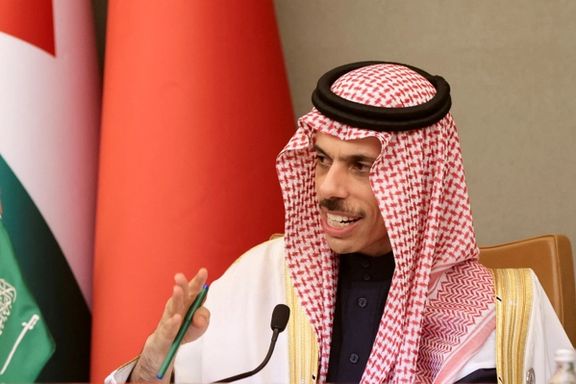
Saudi Arabia's foreign minister said Sunday that Iran's Persian Gulf Arab neighbors would act to shore up their security if Tehran were to obtain nuclear weapons.
Indirect US-Iranian talks to salvage a 2015 nuclear pact between global powers and Iran, which Washington exited in 2018, stalled in September. The UN nuclear chief has voiced concern over a recent announcement by Tehran that it was boosting enrichment capacity.
Iran reportedly has amassed enough 60-percent enriched uranium that if it decides to purify the fissile material further, it could be sufficient for at least one nuclear bomb.
"If Iran gets an operational nuclear weapon, all bets are off," Prince Faisal bin Farhan Al Saud said in an on-stage interview at the World Policy Conference in Abu Dhabi when asked about such a scenario.
"We are in a very dangerous space in the region...you can expect that regional states will certainly look towards how they can ensure their own security."
The statement came shortly after the visit of China’s President Xi Jinping to Saudi Arabia. Riyadh is seen trying to reduce its reliance on the United States. Reports last year said that Saudi Arabia appears to be building ballistic missiles with Chinese help.
The nuclear talks have stalled with Western powers accusing Iran of raising unreasonable demands, and focus shifting to the Russia-Ukraine war as well as domestic unrest in Iran over the death in custody of 22-year-old Mahsa Amini.
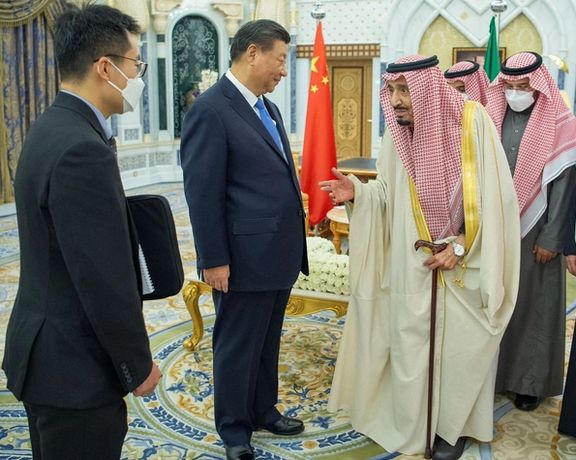
Though Riyadh remained "skeptical" about the Iran nuclear deal, Prince Faisal said it supported efforts to revive the pact "on condition that it be a starting point, not an end point" for a stronger deal with Tehran.
Sunni-ruled Gulf Arab states have pressed for a stronger agreement that addresses their concerns about Shi'ite Iran's missiles and drone program and network of regional proxies.
"The signs right now are not very positive unfortunately," Prince Faisal said.
"We hear from the Iranians that they have no interest in a nuclear weapons program, it would be very comforting to be able to believe that. We need more assurance on that level."
Iran says its nuclear technology is solely for civil purposes, but its policy of enriching uranium to 60 percent has no civilian use and only a short step away from bomb-level purity of 90 percent.
A senior Emirati official said on Saturday that there was an opportunity to revisit "the whole concept" of the nuclear pact given the current spotlight on Tehran's weapons with Western states accusing Russia of using Iranian drones to attack targets in Ukraine. Iran and Russia deny the charges.
Anwar Gargash, the diplomatic advisor to the president of the UAE, reiterated a call for "explicit" security assurances from traditional Western allies, especially in dealing with the threat from Iranian drones that Gulf states have long warned about.
It was not until these weapons "made it into the Ukraine theatre" that they were "catapulted" into the spotlight, and "suddenly the world rediscovered this issue", Gargash said.
"This is an opportunity for all of us to come and revisit the whole concept," Gargash said, referring to the Iran nuclear pact.
With reporting by Reuters
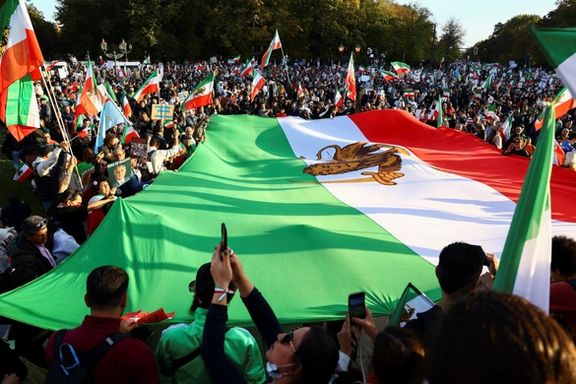
Nearly one million people have so far signed a petition to expel Iran’s ambassadors from the G7 countries in protest to the heavy crackdown on demonstrators.
The campaign initiated by the founding members of “Iranians for Justice and Human Rights” called on the foreign ministers of the United Kingdom, Canada, the United States, Japan, Germany, France, and Italy to immediately designate the ambassadors or other representatives of the Islamic Republic in their countries.
The signatories urge G7 countries to designate the envoys personae non grata and order their expulsion in protest to the illegal and inhumane treatment of protesters in Iran.
The petition also calls on the countries to forcefully and unequivocally demand the release of all prisoners of conscience in Iran.
“The brutal crackdown and violence by …Islamic regime in Iran has resulted in countless deaths, injuries, and incarcerations. It is evident that the Islamic regime in Iran intends to continue and escalate the inhumane violence against its own citizens,” reads the petition.
Since the beginning of the protests after Mahsa Amini's death in the custody of ‘hijab police’, many young and under-age protesters have been apprehended and interrogated. Some were found dead after security forces arrested them in the streets or shot during demonstrations.
Over 18,000 people have been arrested during the recent protests. However, the Iranian regime denies providing any official information about the number of detainees.
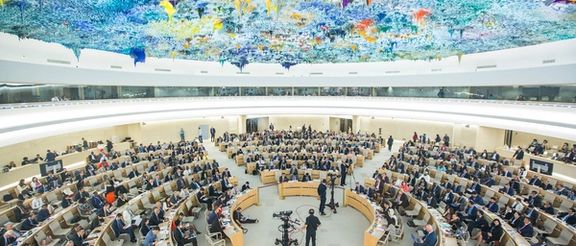
November was a good month for democracy-seeking Iranians who have been on the streets since September, chanting "Woman, Life, Liberty," and "Death to Dictator."
The US government imposed new sanctions on Iranian officials over the protests crackdown sparked by the death of Mahsa Amini, a 22-year-old Kurdish woman in detention after she was fatally beaten in the head for alleged violations of the country’s strict dress code.
The United Nations Human Rights Council held a special session on Iran on 24 November and passed a resolution condemning the deteriorating human rights situation in the Islamic Republic of Iran, the violent crackdown on peaceful protesters, the death of hundreds of people, including scores of children, and the arrests of thousands in connection with the nationwide protests, and voted to establish a Fact-finding Mission to Investigate Alleged Human Rights Violations in Iran Related to the Protests.
On December 14th, there will be an opportunity for the United Nations to undo one of the most grotesque decisions in the history of this world body: appointing the gender-Apartheid Islamic Regime of Iran to the Commission on the Status of Women (CSW).
Since 1946, CSW has been empowering women and promoting gender equality, contrasting with rules, laws, and regulations in Iran's Islamic Regime. The request to hold a vote in the UN's Economic and Social Council came from a resolution led by the US, at the request of Iranian women activists inside and abroad, to oust Iran due to the government crackdown on the women-led protests. But what we’ve seen in the last few weeks is the Islamic Regime of Iran’s (IRI) successful activation of its supporters and apologists in western media, think tanks, and universities to be their propaganda machine against revolution. The IRI and its proxies are engaged in a concerted effort to perpetuate a false narrative about the uprising of Iranian people against their government’s ideology and soften the brutal face of Iran’s regime.
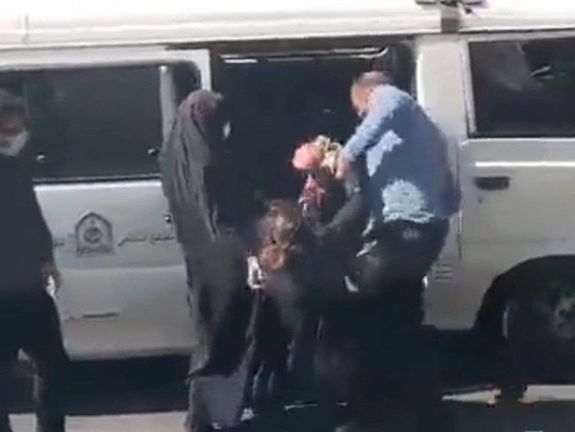
We Iranians living abroad see the competing versions of reality out of Iran, and who gets to choose which reality becomes the narrative, and it’s obvious the some proxies of the regime who have the money and influence are often the ones who decide. For decades, what these so-called experts or pundits said was gaslighting and made us question our account of reality in our experiences by making us question what we know to be the truth.
After years of activists exposing IRI's proxies on social media accounts and revealing the IRI's lobbies, Hossein Ronaghi, a prominent Iranian human rights activist, blogger, and political prisoner, wrote in an Op-ed for the Wall Street Journal, expressing his frustration. "For us, it is as if there are two Irans—the one where we live and another that you read about. Your Iran is defined by a pesky nuclear negotiation. Ours is much worse. It is a religious police state where we live in fear, with countless red lines that most dare not cross. It is a country of repression, censorship, and violence."
A recent New York Times piece shows the propaganda machine in action in regard to Iran’s ‘morality police’ and its future in the country. In response to a reporter's question, IRI's Attorney General said: "The Morality Police has nothing to do with the judiciary, and it was abolished by the same authorities who installed it.” These words prompted reporter Farnaz Fassihi to write an article entitled “Iran Has Abolished Morality Police.” The only problem? It’s not true. On the morning of December 4th, Al-Alam—a channel affiliated with the IRI Broadcasting—denied the possibility of the morality police being shut down and wrote: "Some foreign media have tried to interpret the words of the Attorney General as a retreat by the IRI on the issue of hijab and chastity and affected by the recent riots,” when, according to the IRI, that was not the intended meaning.
For years, Iranians have complained on social media about Fassihi’s reporting and have asked the Times to fix this problem. Iranians even wrote letters to the paper about her “professional infractions”, which include normalizing the Islamic Republic’s brutality through the obfuscation of truth in her journalism over several years.” But our concerns continue to be ignored.
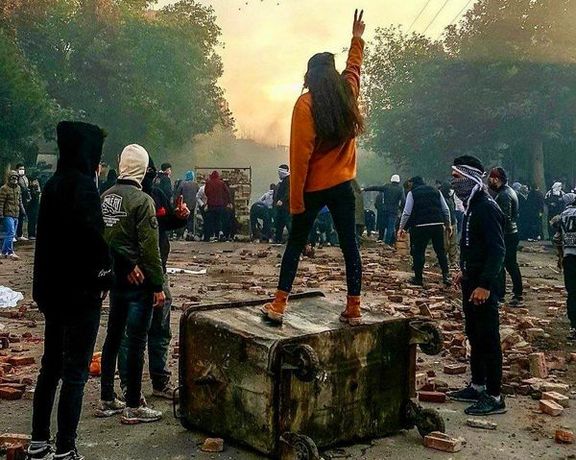
Regardless of whether or not the morality police were actually disbanded, "compulsory hijab" is codified by law in Article 638 of the Islamic Penal Code. It states: "Women who appear without an Islamic hijab in the streets and public will be sentenced to imprisonment from ten days to two months, or a fine of fifty thousand to five hundred thousand Rials." And according to Article eight of the IRI’s Constitution, if someone is not following the Islamic Rules, any citizen can demand that person follow the laws. That’s why we see plain clothes officers or even regular citizens verbally abuse women or even threaten them by calling the police if they don’t wear their compulsory Hijab.
The cruel reality for Iranian women goes far beyond the rules around Hijab. By law, women can’t divorce their husbands, have no child custody rights, receive half inheritance, and can’t leave the country without their husbands' permission. Women also cannot become judges, study certain subjects, play certain sports, enter stadiums, mingle with men, or get elected or appointed into several key positions, including Supreme Leader, President of the Country, President of the Judiciary System, Member of the Guardian Council or Expediency Council, and others. Girls as young as nine can be forced to marry men their father’s pick. Men can legally marry four women and have as many concubines as they wish. Men also can beat their wives. So how can a regime that subjugates women, with so many discriminatory laws, be a member of the Commission on the Status of Women?
Iran is going through a real ‘Renaissance,’ a revolution demanding freedom, democracy, secularism, equality, and justice. Iranians are tired of the restrictions of the gender-apartheid Islamic regime on what they can eat or drink or wear, who they can talk to, and whom they can love. They are tired of the mismanagement of their country's natural resources and nature by clerics and their offspring. A free-democratic Iran means peace and prosperity for the Middle East. Without the Islamic regime, a state sponsor of terrorism, its neighboring countries will be more peaceful, and Iranians will have the freedom and justice they desperately seek. And we need western voices to help get us there.
The opinions expressed by the author are not necessarily the views of Iran International